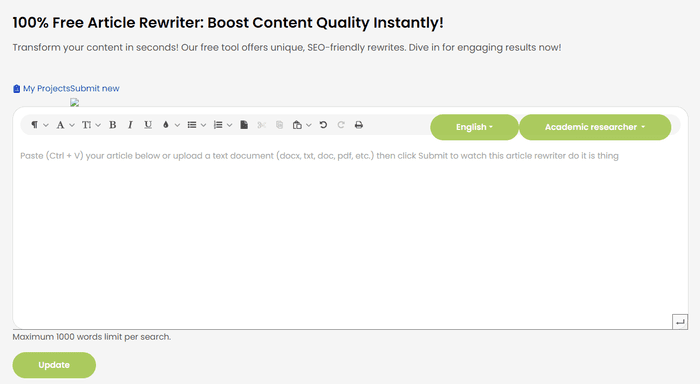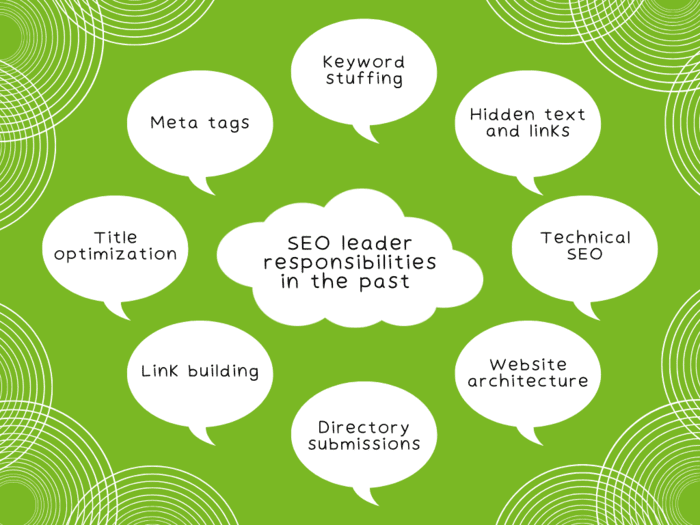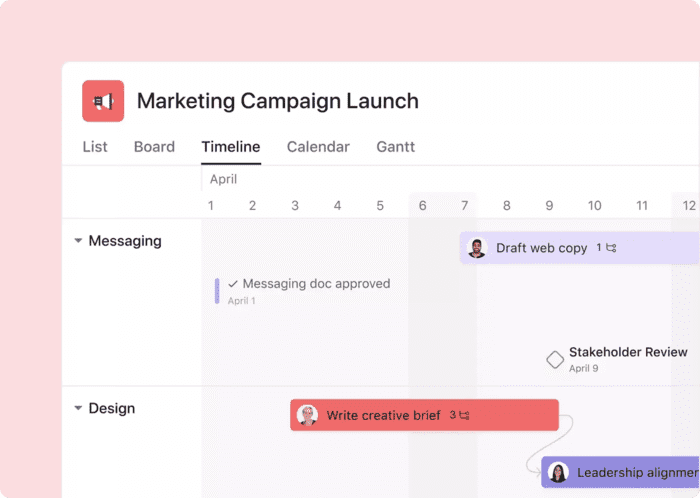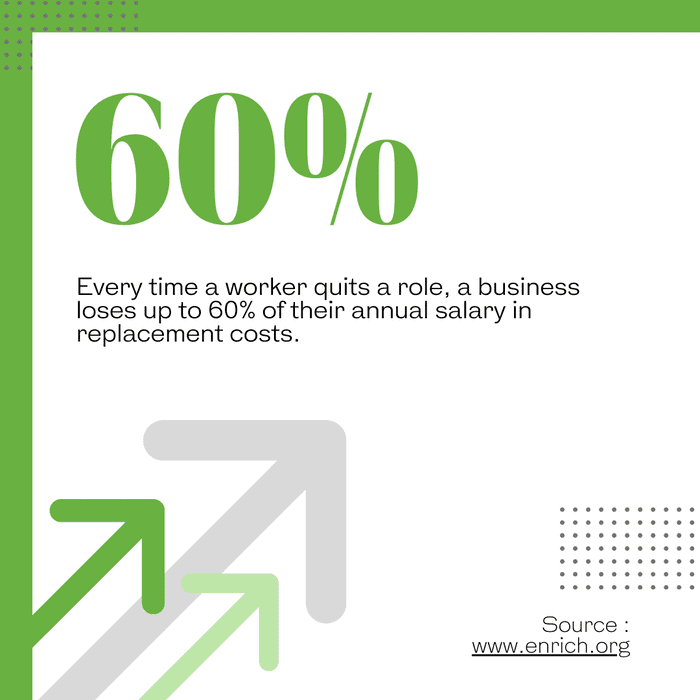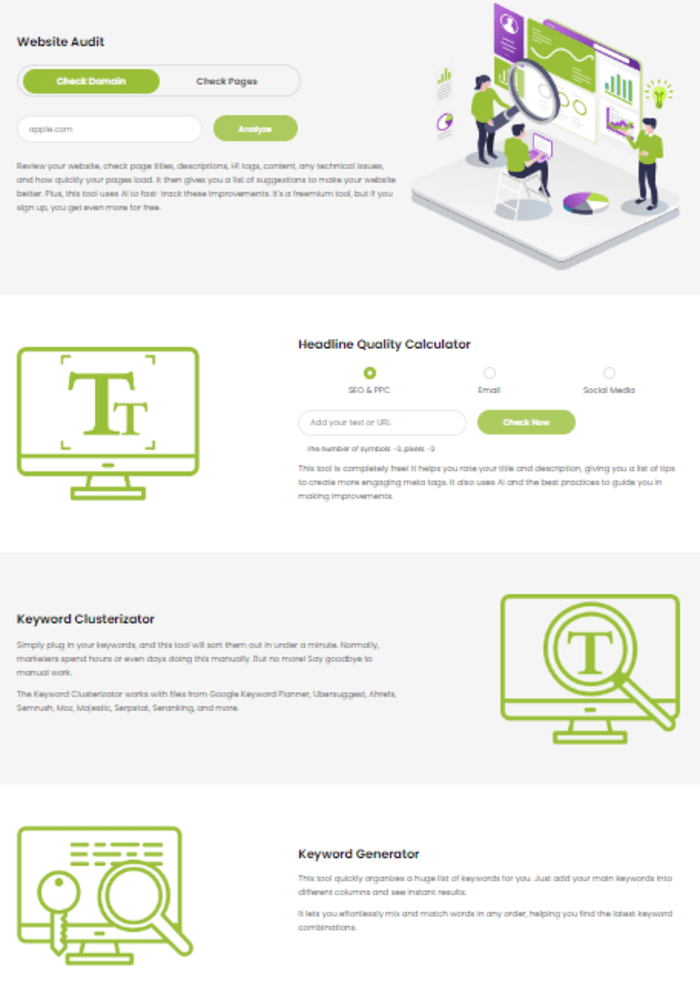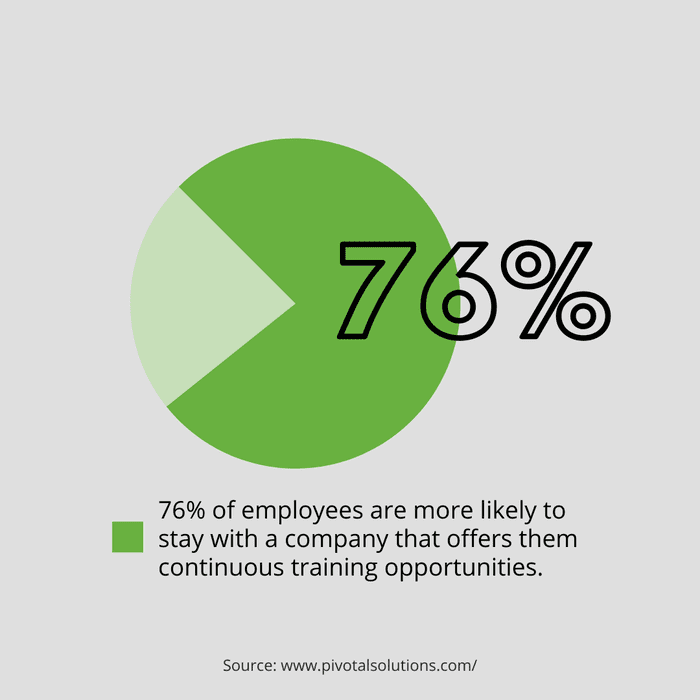Effective SEO Leadership Strategies: Steps to Guide your Team to Success in Digital Marketing
A mere 1% increase in effective leadership can lead to a staggering 54% increase in organizational performance.
The impact of good leadership is massive on an organization.
Exceptional leaders pave a clear path toward company growth, employee retention, and customer acquisition.
Effective SEO leadership strategies are a must to ensure the success of every organizational leader, their team, and the entirety of the organization.
Search engine optimization (SEO) is the cornerstone of business success. It determines whether a consumer will click through to your site or visit your store.
Behind every thriving business is an effective SEO team, driving tangible results behind the scenes. A team is only as strong as its leader, who guides the strategy and oversees the work being done.
SEO leaders are at the forefront of driving actionable and tangible results. However, if effective SEO leadership strategies aren’t in place, then your SEO performance will likely suffer, causing a negative trickle-down effect.
A good SEO leader is a must to ensure teams stay up to date on the latest best practices and emerging trends. They also oversee the collaboration between different departments, ensuring the team stays aligned with varying business needs.
To streamline success, SEO leaders arm their teams with the best tools, such as the numerous SEO tools you can find on UNmiss for free.
By integrating the latest technology and fostering a team environment built on trust, growth, and continuous learning, businesses are better poised to achieve optimal results.
In this article, we’ll discuss the important role an SEO leader plays and how they can grow to become a respected peer that SEO team members feel comfortable turning to. These insights will help you understand how leading SEO teams operate, helping mirror and apply similar strategies to your own business.
UNmiss Article Rewriter tool
The Impactful Role of an SEO Leader
The role of an SEO leader has drastically evolved since the inception of the internet. SEO is a field in constant flux, where new algorithm updates and best practices shift regularly.
SEO used to be a much more technical role, entailing more back-end work and coding experience. Now, an SEO leader is entrenched in the digital marketing strategy, playing a key role on the marketing team.
In the past, SEO leaders focused on broader strategies such as keyword research and link building. They possessed in-depth knowledge of how search engine algorithms work and were well-versed in the back end of websites too.
Success was measured by where a website appeared on the search engine results pages (SERPs). Tactics such as keyword stuffing and writing poor-quality content didn’t negatively impact rankings. In fact, keyword stuffing often helped websites appear higher in the SERPs.
Life as an SEO leader was often repetitive, a rinse and repeat of tried-and-true strategies. That’s no longer the case.
Google and other popular search engines have become much more advanced, emphasizing creating quality content and dinging websites that practice deceptive SEO tactics.
In turn, the role of an SEO leader has expanded from being relatively stagnant to a quick-thinker ready and willing to adapt to change. Many SEO leaders possess a strong marketing background and the ability to collaborate cross-functionally.
While technical experience is still a must, SEO leaders must also be great marketers and skilled at leading teams. They must be effective communicators capable of working with diverse personalities and skill sets.
Being an SEO leader is no longer for those who prefer stability; however, the work can be highly rewarding when results are achieved, revenue grows, and teams function together well.
Building a Strong SEO Team Culture
Creating a collaborative environment built on trust and mutual respect is essential for empowering employees on SEO teams. SEO is a highly collaborative career where team members often interact with myriad teams. Some of these times might include development, product, marketing, sales, and more.
Success is contingent on a team’s ability to share ideas, discourse, and feedback freely, which means team members must feel comfortable working with their SEO leader.
Better outcomes will undoubtedly be achieved when employees feel encouraged, heard, and seen by their supervisors.
One-on-one meetings, team huddles, and the use of collaborative tools that give a transparent view of what team members are working on can lend to an environment of transparency and trust.
SEO leaders and team members are able to consistently see where others are at, which projects take precedence, and view tasks that are upcoming or due. Visibility is key for ensuring smooth workflows and that projects are completed on time.
Example of Asana project management software
Encouraging continuous learning should be another key area of focus for SEO leaders. As aforementioned, the SEO realm is dynamic. What works well today to improve search rankings might not be the case next week.
Sharing webinars, eBooks, articles, and other information with team members engages them and promotes expertise. Knowledge sharing helps team members sharpen their skills and feel comfortable amid the evolving world of SEO.
Employee happiness extends beyond the day-to-day tasks, community, and professional development. SEO leaders must keep a pulse on what employees value most to prevent work-related burnout and improve job satisfaction.
A recent survey found that 86% of knowledge workers (those not in a leadership position) say their salary is “very important” to them – and fewer leaders said the same (72%). It’s clear employees want fair compensation and it’s important to keep in mind it can cost more to replace them.
Another study found that every time a worker quits a role, a business loses up to 60% of their annual salary in replacement costs. That means if an SEO employee is making $65,000 a year and quits, your company might wind up spending $39,000 just to replace them. Then there are the costs associated with onboarding and training the new employee.
Based on these studies, there’s a clear correlation between SEO employee happiness and job longevity—compensating fairly and giving employees periodic raises to show gratitude for their hard work.
Innovative Leadership Techniques in SEO
Being an SEO leader means rolling with the punches. You must constantly be agile and ready for change.
Transparency-focused Leadership
Agility is more than a state of mind. It’s staying ahead of consistent algorithm updates, implementing agile methodologies, and keeping open lines of communication with your team.
Most importantly, it’s setting the expectation that projects can shift and change at any moment.
Through direct, quick, and clear communication team members are able to shift tasks and refine strategies in near real-time. This ensures your business is not only staying ahead of your competitors but also taking advantage of new opportunities.
Set the precedent with your team that shifts can happen often and quickly, and have a project management system that allows for alerts. Ensure employees are looped in any time a project veers a different direction by sending email updates or in-platform reminders.
Data-Driven Leadership
Data is an SEO leader’s best friend. It helps inform SEO strategies and provides evidence to back decisions rather than intuition alone.
Tools like UNmiss’s website audit, headline quality checker, broken links finder, and more are all useful to incorporate into your SEO arsenal. Each can help you measure the effectiveness of your SEO efforts while also offering suggestions for improvement.
These tools provide insights into:
- If broken links exist on your site
- Page Experience signals such as page speed
- Content quality
- Keyword research
- Tagging
- Technical issues
- Content issues
- Domain authority
- Page ranking
Collaborative Leadership
A solid SEO leader also bridges the gap across departments, ensuring SEO goals align with broader business goals. Leaders must work closely and effectively with external teams to ensure they provide support and enhance marketing campaigns.
SEO leaders should schedule regular meetings with other teams to stay up to speed and keep teams informed of how they can help support SEO too.
Empowering Your Team with Cutting-Edge Tools and Technologies
Your SEO team needs access to the latest innovative tools to ensure they’re able to maximize their time and effort. To ensure your team is set up for success, start by identifying the best SEO tools available for your organization’s needs.
Ahrefs dashboard example
When evaluating tools, consider factors such as keyword research functionality, site auditing features, content optimization, intuitive user interface, backlink analysis, and the ability to see what your competitors are doing.
Tools like those offered on UNmiss, Ahrefs, SEMrush, Google Analytics, and more offer a complete suite of SEO tools, allowing you to tackle multiple facets of SEO within one platform.
Sample set of UNmiss’s SEO tools
These tools can significantly enhance your team’s performance, streamline work, and identify new opportunities to improve your current SEO efforts.
Choosing the right SEO tools is only half the battle; getting them implemented is another important endeavor. Ensure the tool or tools you select integrate into your current processes and platforms.
Tools must be set up correctly because if they’re not, you won’t be able to accurately assess performance.
Promote Ongoing Professional Development
Tools are only one piece of the SEO puzzle. In an industry rife with innovation and technology updates, it’s crucial for both you and your team to keep up with the latest and greatest.
Professional development is one way to stay on top of ongoing trends and current strategies.
Events, webinars, podcasts, conferences, certifications, and more share actionable insights from other businesses in your industry. These insights may help propel business growth and SEO strategy forward.
Additionally, professional development is a great way to show employees that their success and career matters. By paying for your employees to attend industry conferences, and obtain a new degree or a certification related to their job responsibilities, you mutually benefit from the knowledge employees gain.
Professional development may lead to longer employee retention, reducing the effort and need to rehire the same roles. A study found that 76% of employees are likelier to stay at a company that offers them continuous training opportunities.
Human resource managers see the benefits of continuous education too. Nearly all (86%) of HR managers believe that training helps keep employees happy and employed longer, and 83% believe it is also helpful for recruiting new employees.
Overcoming Common Challenges in SEO Leadership
SEO employees and leaders alike may find that constant algorithm changes, uncertainty, and strategy shifts lead to burnout.
SEO leaders can mitigate the risk of employees quitting or feeling burdened by their jobs by instilling confidence in their employees, ensuring your staff that no matter the algorithm update, you’ll work through it as a team.
A few other methods for overcoming SEO-induced challenges teams often face include:
- Staying Informed: SEO leaders should be proactive and keep abreast of industry news, algorithm updates, and best practices. Just as employees are expected to expand their education, SEO leaders must be held to the same standards and expectations. Leaders should regularly attend conferences, seek information from reliable sources, and communicate with other leaders in your field.
- Monitor Performance: One benefit of being in the SEO field is it’s easy to track performance and ensure you’re meeting your goals. SEO leaders should regularly track metrics such as traffic, search engine rankings, and conversions to assess both the impact of algorithm updates as well as the strategies their team is employing.
- Keep a Pulse: By consistently monitoring reputable industry publications, subscribing to relevant newsletters, and continuing education, SEO leaders are better poised to know when a major algorithm change is occurring. This can help explain noticeable increases or decreases in performance to share with the wider team.
- Be Nimble: As an SEO leader, you must be ready and prepared for constant change. Staying stagnant isn’t acceptable in an SEO-focused career, especially as a leader. It’s also crucial to hire employees who can adapt to this mindset and expectation of remaining flexible and ready to change SEO strategies at any moment.
- Test: SEO often works best by testing various approaches and strategies to see what works best. Collaborate with your team to brainstorm new strategies, go over performance, or share recent algorithm changes and how they’ll impact the business.
- Use Tools: SEO isn’t an effort you can do on your own. Tools are necessary to conduct thorough keyword research, identify how to improve your content, implement structured data, and more. Tools are your ally and should be used regularly to help you reach your goals.
Remote Team Management
COVID-19 prompted vast, noticeable changes for businesses. One of those key shifts was allowing for remote work.
This major health crisis may be more contained, but remote work is here to stay. Many businesses have adopted a remote work policy or a hybrid schedule.
However, with a team that may be dispersed geographically and across different time zones, it’s essential to maintain collaboration and human connection.
As an SEO leader, you are responsible for effectively managing your team, regardless of where they’re located. A few best practices to ensure employees feel connected to their colleagues include:
- Go out of your way to allow everyone to speak and voice their opinions during team meetings.
- Discover what your team needs to feel engaged and motivated to do their work.
- Keep the team focused by identifying top priorities.
- Stay prioritized by leveraging project management software to keep track of employees’ tasks and work being completed.
- Recognize team members’ hard work and contributions.
- Take an interest in your employees’ lives outside of work. Find out what makes them tick and what they enjoy doing for fun.
- Avoid micromanaging.
- Help your team establish healthy boundaries and encourage them to not check their messages outside of work hours.
- Ask employees to provide regular feedback regarding how they feel about their job and your management style.
- Host team-building events to get your team together in person.
- Be empathetic and understanding of your employee’s concerns and requests.
- Be the leader you wish to have. Exemplify leadership by earning respect from your team.
Address Burnout and Maintain Motivation
The SEO industry can be a daunting field where employees often face burnout and a lack of motivation if they’re not properly prioritizing self-care and maintaining a healthy work-life balance.
Employees who experience burnout are likely to leave the business or take personal time. 23% of burnt out employees are more likely to visit the emergency room and 63% are more likely to take a sick day. They’re also 2.6x as likely to be actively seeking a new job.
Team culture begins at the top. If SEO leaders aren’t adequately conveying the importance of rest, relaxation, and prioritizing friends and family, their employees may not take the time off that’s necessary to recharge.
As an SEO leader, it’s important to communicate the importance of setting expectations with your employees. Encourage employees to use their vacation time and not check their emails during holidays.
Avoid messaging employees before or after work hours. This includes sending messages through project management software, email, or team communication platforms.
Advocate for your employees to focus on activities or hobbies that bring them joy such as taking a walk during their lunch break or going to the driving range after work.
Knowing that impactful change comes from the top-down, businesses must also focus on developing good managers and setting the precedent of being a culture focused on integrating proper work-life balance. It’s equally important to let go of managers who aren’t adhering to these principles or those who promote a poor company culture.
Effective SEO leadership strategies entail a blend of multiple principles mentioned throughout this article. Each of these principles is integral to the success of a business’s digital marketing strategy and bottom line, including:
- Building a team culture built on trust and respect.
- Being visible and transparent about important facets of the business.
- Empowering your team with the best SEO tools.
- Encouraging work-life balance.
- Embracing a culture built on professional development and collaboration.
- Being compassionate and empathetic of employees’ unique needs.
- Managing a remote team effectively and with good communication.
- Bridging the gap between departments to align with organizational needs.
- Making data-driven decisions and continually measuring performance.
By implementing the above leadership tactics and strategies, you can empower your team to achieve maximum results while ensuring their happiness. Research has shown that happy employees are 12% more productive than unhappy employees. As a leader, constantly strive to be better and you’ll achieve better outcomes.
Don’t forget to empower your team with the best and most amazing set of SEO tools found at UNmiss!



